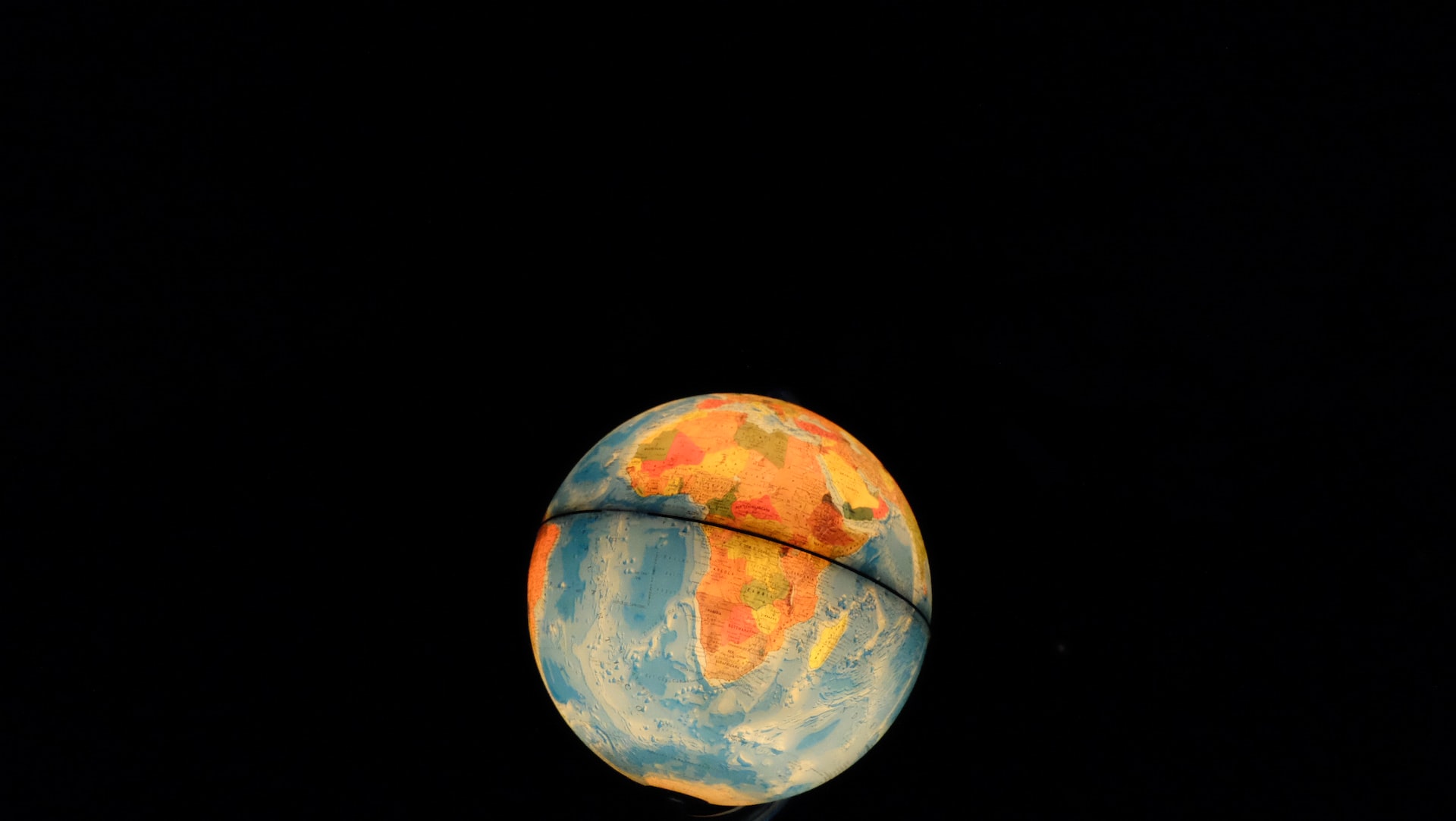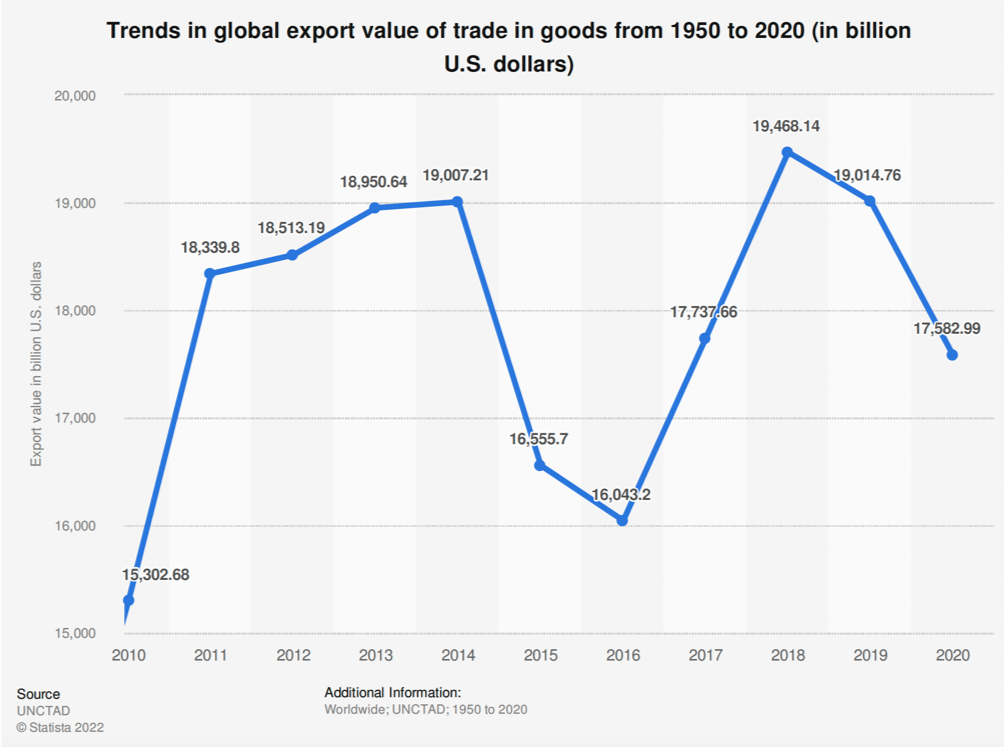What will globalization be like (if any) in ten years?

We have realized how fundamental the circulation of ideas, goods, capital, services and people is, but globalization as we know it is already changing. The article by Alessandro De Nicola and Filippo De Nicola from the latest issue of the quarterly Start Magazine
Wanting to identify a date from which to start the serious difficulties in which the globalization phenomenon is being debated, we could indicate January 20, 2017, the inauguration day of the Trump presidency. In fact, from that moment on, the most powerful country in the world, architect of the world institutional architecture that had allowed globalization, assumed a position hostile to free trade, very restrictive on immigration and skeptical towards the very international organizations and treaties of which it was been the pivot, from NATO to NAFTA, from the UN to the WTO.
After a few years, the pandemic hit global supply chains hard and governments, including European ones, enacted restrictive laws on cross-border acquisitions (our Golden Power).
On February 24, the world changed: the Russian aggression against Ukraine is not only upsetting the lives of millions of people, but is upsetting the geopolitical and economic balance of the planet.
It therefore becomes urgent to ask ourselves some questions to think about the world in the next five, ten years.
THE REFORM OF VALUE CHAINS
First question: is globalization over? Yes and no. The so-called value chains will reform, favoring more friendly countries with political-institutional stability even over those with cheap labour, good infrastructure and technology. Indonesia over China, for one.
Furthermore, there will be greater diversification so as not to risk being dependent on a single supplier even when this could be convenient and, for the OECD countries (the more developed ones) there will be a phenomenon of repatriation of some products. It will become more complicated to carry out cross-border acquisitions, information in some countries will circulate with much more difficulty (Russia and China), trade in technological goods will be restricted.
This is the so-called friendly reshoring , but it will not be an easy or cost-free process. First of all, dismantling the complex network of agreements that already binds the West to trading partners of unreliable countries can take a lot of time. The most striking example is that of Russia and its role as a gas producer. But the same can be said of lithium, which is precious for electric batteries and whose worldwide production has been largely taken over by China. Secondly, not only is moving from one state to another expensive, but the chosen location is still second best , otherwise it would have been identified sooner. And being second best means that either the prices are higher or the quality is poorer or the transport times much longer.
Finally, the risk of disengagement is that those countries which today are considered unfriendly and which however also have to lose by detaching from the West, once the separation or the easing of trade ties has taken place, may become hostile and in any case no longer influenced. It is true that if you are dealing with a megalomaniacal and ruthless autocrat like Putin, commercial ties count up to a certain point, but not all situations are the same. In other words, it will be necessary to exercise a certain amount of prudence, carefully evaluating the pros and cons for each individual situation.
Naturally there will not go back completely, but politics could make things worse: forgetting for a moment the pariah Vladimir, Trump or Le Pen are always looming threats and Xi Jingping's China could spiral in on itself. It will therefore be necessary to take good care of the functioning of multilateral bodies such as the WTO, the United Nations, UNESCO, the World Bank, the IMF, the G20 and so on. The work of these large institutions can be frustrating at times, but they remain important clearinghouses and discussion rooms in which to engage emerging countries. It is not good for the West if the Brics agreement expands to include Saudi Arabia or Iran: parallel worlds are created with interests and often values that are very different from ours and which can be coordinated to our disadvantage, while the divide and rule of the Romans it always remains valid (like the si vis pacem para bellum , by the way).
What will be the consequences? For a liberal, the answer is obvious: a decrease in well-being and knowledge as well as a possible increase in authoritarianism and military tensions (“where goods don't pass, armies pass” Bastiat warned). Fortunately, even those who warned against Tunisian oil are realizing the beneficial effects of free trade, sometimes with the rarely hairy argument that the sanctions against Russia also damage Italy: and who would have thought said? It was enough to read Hume, Smith and Ricardo, good stuff from 250 years ago. However, since in the thirty years 1945-1975 the world was much less interconnected and even more divided into blocks and despite everything the growth was impetuous, all is not lost.
REDISCOVER THE PRIDE OF CIVILIZATION
And then, third question: what to do? The most sensible thing is not to exaggerate: it is not necessary to extend the golden power to the sale of drugstores, indeed it is necessary to loosen its extension when commercial transactions are between friendly countries. Nor is the remedy to the temporary food supply crisis the reckless and long-term increase in funding for European agriculture, as industry interest groups are rushing to urge.
Secondly, commercial integration and free trade agreements between the West, the Pacific area and Africa must be resumed with great vigor. We have indeed realized how fundamental the circulation of ideas, goods, capital, services and people is. The ball is above all in the hands of the USA, but Europe and Italy can do their part: in our country, for example, by promoting competition policies and corporate efficiency. Moreover, we realize how distortive public subsidies are when subsidized Chinese companies come to compete with ours and try to buy them. Well, they are always distortive: the pandemic has required a large influx of public money, but methadone has never been the definitive solution to the state of addiction. It is therefore desirable that the European legislation on state aid be brought back into full force and strengthened, also making it an integral part of commercial treaties.
From the point of view of the battle of ideas, moreover, it is necessary for the West to take back the pride of its civilization. It's true, there is a past of colonialism, imperialism, racism, but it wasn't exclusive to the West. All were imperialists and colonialists when they were strongest: from the Ottomans to the Mongols of Genghis Khan to 20th century Japan. And for racism it is enough to look at the history of massacres among African ethnic groups or pre-Columbian civilizations or how Asian cultures have considered (and sometimes, alas still consider) their neighbors. We have our faults, but we have spread tolerance, free trade, universities, freedom of the press, the scientific method, technology, the rule of law, international institutions, parliaments, habeas corpus , the complete acceptance of people with different sexual preferences and the vast majority of practices and principles that in theory everyone claims to inspire. Therefore cancel culture , critical race theory , gender tribalism, race or sexual preferences and the excess of political correctness are cultural expressions that can bring out distortions still present in our societies, but they must not make us forget that we can and must be proud and reaffirm values that are universal today. These values are the true basis of globalisation.
In conclusion, politics and the pandemic impoverish us, but we still have arrows in our bow: great confusion under the sky, the situation is excellent.

You can download the digital pdf version for free using this link: https://www.startmag.it/wp-content/uploads/SM_16_web.pdf .
This is a machine translation from Italian language of a post published on Start Magazine at the URL https://www.startmag.it/mondo/come-sara-se-ci-sara-la-globalizzazione-tra-dieci-anni/ on Fri, 06 Jan 2023 06:18:28 +0000.
